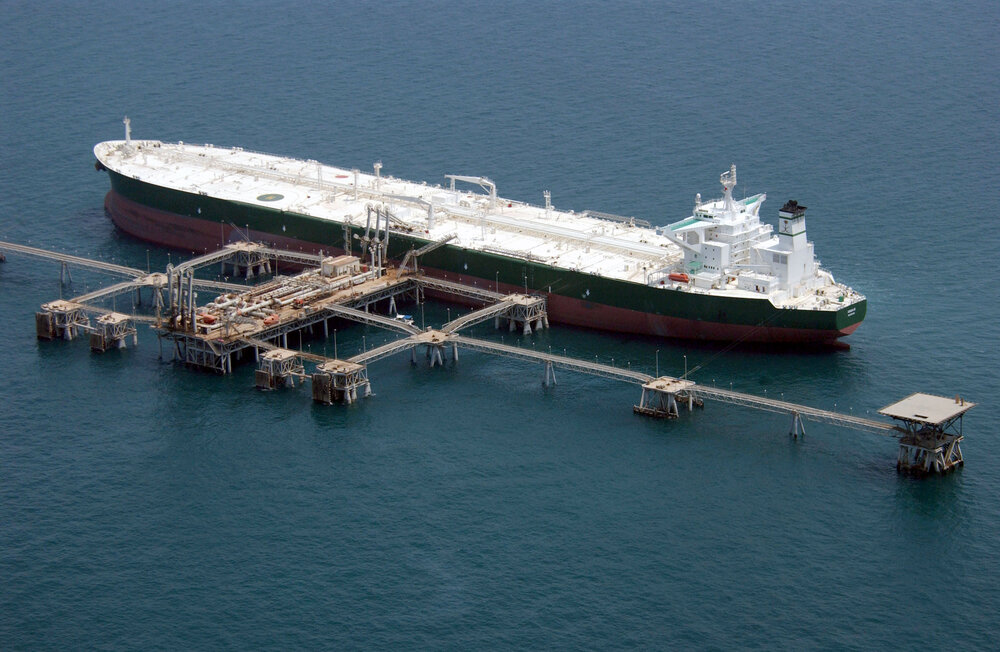Iran’s annual oil output grew 7% in 2022: OPEC

TEHRAN – Iran’s oil production in 2022 increased seven percent compared to the previous year, according to OPEC’s first monthly report released in 2023.
According to the OPEC report, the Islamic Republic produced 2.554 million barrels per day (bpd) of crude oil in 2022, 162,000 bpd more than the figure for 2021, when the output stood at 2.392 million bpd.
Citing secondary sources, the report put Iranian crude output for December 2022 at 2.574 million bpd indicating a 9,000-bpd increase compared to the figure for November.
The country’s heavy crude oil price also increased by $30.12 in 2022 to register a 43-percent rise compared to the previous year, according to the OPEC report.
Iran sold its heavy crude oil at $99.92 per barrel on average in the mentioned year, compared to 2021 when the average price was $69.8 per barrel.
In the last month of 2022, the average price of Iranian heavy oil was reported to be $79.11, which has decreased by $9.62 compared to the previous month.
Iran has been ramping up its oil production and exports over the past year as the country has been implementing new strategies to overcome U.S. sanctions.
A recent report by Reuters stated that Iran’s oil exports have reached new highs in the last two months of 2022 and are making a strong start to 2023 despite U.S. sanctions.
According to ship tracking data, the Islamic Republic’s oil exports have risen mostly due to the higher shipments to China and Venezuela.
Energy consultant SVB International said Iran's crude exports in December averaged 1.137 million barrels per day, up 42,000 bpd from November and the highest 2022 figure SVB has reported based on estimates given earlier.
"In comparison to the Trump administration, there hasn't been any serious crackdown or action against Iran's oil exports," said Sara Vakhshouri of SVB. "January exports were so far strong like previous months."
"Lower Chinese demand and Russia's supply to China have been a major challenge for them. Most of its oil still goes to the Far East, ultimately China. Iran also helps Venezuela to export its oil."
Consultant Petro-Logistics, which tracks oil supply, said it was also seeing an upward trend in Iranian crude exports which, in its view, in December reached their highest level since March 2019.
Kpler, a data intelligence firm, put Iranian crude exports at 1.23 million bpd in November, the highest since August 2022 and almost on a par with April 2019's rate of 1.27 million bpd, although they slipped to just below 1 million bpd in December.
According to another analyst, Vortexa, China's December imports of Iranian oil hit a new record of 1.2 million bpd, up 130 percent from a year earlier.
"Most of these shipments found home in Shandong, where independent refiners have turned to discounted grades since the second half of 2022 amid sluggish domestic demand and depressed refining margins," the company said.
Vortexa said supply of Russian Urals, the main competing grade to Iranian oil, fell in December - when a price cap on Russian crude exports and European Union ban created uncertainty for buyers.
The press department of China's Foreign Ministry, in response to a Reuters request for comment, said: "The legitimate and reasonable cooperation between China and Iran under the international legal framework deserves respect and protection," without directly addressing Reuters query on China's record Iranian oil purchases.
Iran has also been expanding its role in Venezuela, despite U.S. sanctions, sending supplies of light oil for refining and diluents to produce exportable crude grades.
Iran's national budget bill for the upcoming year is based on even higher shipments of 1.4 million bpd, the semi-official Fars news agency reported this week.
Following Trump's removal of the United States from the nuclear deal and reimposition of sanctions, Iran's crude exports fell back to as little as 100,000 bpd at times in 2020 from over 2.5 million bpd in 2018, according to tanker trackers.
EF/MA
